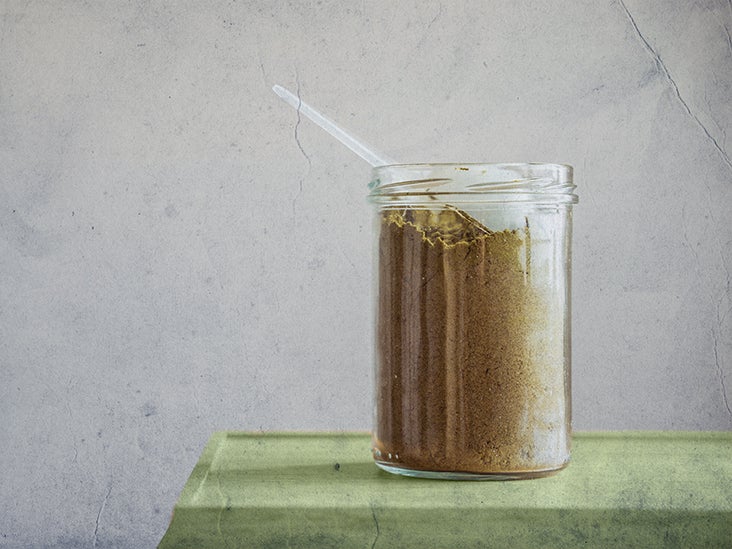Nutrition, health benefits, and more

Hemp seeds are a plant-based source of complete protein that provides a range of nutrients. It’s a great option for people who want to add more protein to their diet while avoiding animal products.
Hemp is the source of cannabidiol or CBD oil, but its seeds are also a rich source of plant protein. Manufacturers make hemp powder by grinding hemp seeds into a fine, earthy-tasting powder.
This article reviews hemp protein, its nutrition and health benefits. It also compares hemp protein to other protein powders and looks at alternative plant protein sources.
Learn all about the hemp plant here.
Hemp protein is a complete protein, which means it contains all nine essential amino acids that the human body needs but cannot produce. Therefore, an individual must include these amino acids in their diet.
Some experts claim that hemp seed is one of the most
Studies have shown that the nutritional value of hemp seeds varies widely depending on the environment they are growing in and the specific type of plant they are. However, typically, its nutritional profile contains:
The most abundant protein in hemp seeds is edestin, which accounts for approximately 82% of the total protein content of hemp. Albumin makes up about 13% of total protein, while β-conglycinin makes up up to 5% of the total.
Together, these proteins contain all nine essential amino acids. The most abundant is glutamic acid, followed by arginine. Hemp protein contains more sulfur amino acids, such as methionine, cysteine and homocysteine, than soy protein and the milk protein casein.
Hemp protein also contains higher levels of amino acids than soy protein, with the exception of aspartic acid, glutamic acid and lysine. Lysine is the main deficiency in hemp protein.
According to
Learn more about essential amino acids here.
Hemp protein has various health benefits, including:
Easy to digest
Although humans generally digest animal protein more easily than plant protein, research indicates that individuals can
This may be because hemp protein is rich in edistin and albumin, which the body can digest easily. The body breaks down these foods and uses much of the amino acids in various processes, such as tissue repair and cell maintenance.
When hemp protein undergoes heat treatment, it becomes even more digestible.
Learn more about the differences between plant and animal proteins here.
An excellent source of fiber
Eating enough dietary fiber promotes digestive health and reduces the risk of heart disease, obesity, type 2 diabetes and certain cancers.
Consumption
Individuals may want to consider adding hemp protein to their diet to improve their fiber intake, as a 31g serving contains approximately
Learn more about the importance of dietary fiber in the diet here.
Contains healthy fats
Hemp protein contains unsaturated fats. A 31g serving contains approximately
Polyunsaturated fatty acids in hemp protein
Omega fatty acids are essential for good health because they help maintain cell membranes, contribute to heart health, and regulate inflammation and metabolic processes.
Learn more about food sources of omega-3 fatty acids here.
Protein powders are either plant-based or animal-based. Besides hemp protein, other popular choices include whey protein and soy protein.
The protein and calorie content in 100 g of these proteins are:
Although whey protein is high in protein, it is also an allergen. Therefore, those with dairy sensitivities or allergies may need to avoid this protein source. Likewise, soy allergies are relatively common. However, experts generally do not consider hemp an allergen, and some suggest it is suitable as an ingredient for hypoallergenic foods.
Additionally, whey protein is not vegan and cannot supplement vegan diets. However, hemp and soy products are suitable for vegetarians and vegans.
Hemp and soy proteins come from plants and are complete protein sources. However, people may prefer to opt for hemp because it is less processed, unlikely to trigger allergies, and is
Learn more about proteins suitable for vegans here.
If individuals do not like the taste of hemp protein, there are other ways to consume hemp seeds and benefit from its health-promoting properties, including:
- Meal: People can sprinkle whole or ground seeds on salads, cereals or yogurt. If they prefer a softer texture, they can add hemp seeds to soups or stews.
- Baked goods: Ground or whole hemp seeds add an interesting texture to bread, muffins and other baked goods.
- Hemp milk: A person can make hemp milk at home by soaking the seeds, mixing them, and straining them. The resulting product is a protein-rich plant milk that people can add to tea or coffee or make into smoothies or milkshakes.
Discover some of the best sources of plant-based protein.
If a person wishes to increase their protein intake while reducing their use of animal products, they can find a range of alternative plant protein sources. Choice
Although an individual can add protein powders to their daily routine to increase their intake, they should not be used in place of a balanced diet.
People should also consider that excessive consumption of dietary protein can have adverse effects on metabolism and gut health.
It should also be noted that protein powders may contain various added ingredients, such as sugar or sodium, to enhance their taste. People should read nutrition labels carefully if they want to avoid these additives.
Learn about the dangers of consuming too much sugar here.
Hemp protein comes from the seeds of the hemp plant. It is a rich source of fiber and polyunsaturated fatty acids which the human body finds easy to digest.
A 31g serving of hemp protein
If people prefer not to consume hemp protein, they can add hemp seeds to baked goods, soups, salads or make hemp milk and add them to beverages.
Hemp protein contains less protein than whey and soy protein. However, it is suitable for vegans, people with allergies to soy or milk, and those who prefer to avoid highly processed foods.